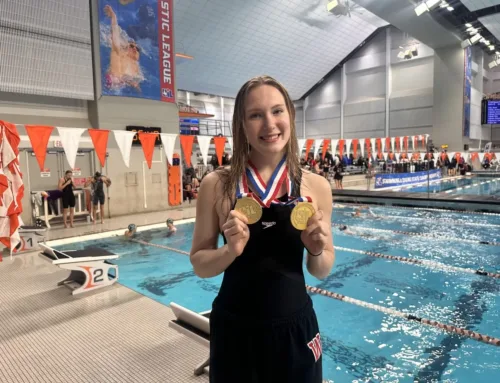This spring, every time I picked up a Morning News, Harriet Patterson was there.
Valedictorian. National Merit Scholar. Star Athlete. Outstanding Citizen. Repeated Scholarship Winner.
She appears to be the high school scholastic equivalent of Emmitt Smith.
But there’s a chink in her seemingly impenetrable armor: Harriet Patterson is a graduate of DISD.
That statement, given the current state of opinion in this City, seems to call into question every positive thing said about her, doesn’t it?
It’s embarrassing to say this, but based upon our collective perceptions of the Dallas Independent School System, many of us probably are asking ourselves this question: What is wrong with Harriet Patterson that someone so intelligent and gifted found it necessary to attend the public school system in Dallas?
Did she have a death wish? Is she a self-proclaimed martyr? A masochist? Didn’t her parents have the common sense, or the money, necessary to spare their talented daughter a fate destined to ruin her life?
This month, along with our stories about parents who could afford to send their children to private school but chose instead to send them to public school, we asked Harriet to address this question: As a talented graduate of DISD, did she feel cheated by not attending a private school?
Her answer is almost painful in its simplicity: No.
Here’s a bit of what she says:
“Can a child receive the same level of education at a public school as at a private school? I certainly think so, but I suppose the answer lies in one’s definition of education.”
“To some, the procurement of knowledge is the only measure by which the quality of education can be evaluated.
“However, as a recent high school graduate looking ahead to college and my life thereafter, I am much more interested in the skills and experience I have gained through my education that will allow me to apply and expand this knowledge…”
“I have come to appreciate the cultures and religions that differ from my own, and an open mind has been one of the greatest acquisitions of my education thus far.”
Now, these wise statements don’t seem like the stereotypical DISD graduate we read about with sub-standard English skills and an abiding interest in guns and knives.
And it’s interesting to note that her comments aren’t all that different from those of J.L. Long principal Al Harris, someone else who isn’t afraid to make a politically incorrect statement or two:
“The measure of our success (in DISD) is not fully evaluated. They’re evaluating us on test scores. The value of life cannot be separated out by the knowledge of math and science”
“As a parent, I’m not looking for safety and efficiency, I’m looking for a sense of: These kids, all kids, are important.”
And check out these thoughts from Lakewood Elementary principal Karen Rogers, which also can be found in our article about educators commenting on education:
“I ask people not to make judgments (about DISD) by what they see driving by, but by what you see when you step inside…”
“You can’t beat the quality of our instruction (at DISD). I don’t know any private school that offers a more rich ethnic student population. And I say rich, because it’s not tokenism…”
“If you’re willing to work for it, you can make any school in any setting what you want it to be. The power of the public voice is enormous.”
Now, this is supposed to be a 700-word or so column each month, and at this point, I’ve already used up 588 words, by my count.
So I’m going to get right to the point: There’s not necessarily something wrong with DISD. Instead, there’s probably something wrong with most of us.
A school system that can turn out a Harriet Patterson, and can offer the tutelage of an Al Harris or a Karen Rogers, can’t be all bad.
What is inexcusable, though, is that many of us who haven’t been in DISD schools, and who don’t know DISD graduates or staff members, are more than willing to agree with others who ridicule our public school system without evidence or personal experience.
When each of us allows this trash-talk to continue unchallenged, we aren’t only hurting DISD, we’re hurting ourselves. Because as taxpayers, we have the power to make a difference – if not in the education of our children, then in the education of those children who have no choice but to enroll in DISD.
I’m not advocating that everyone run out and sign up their kids for a DISD school. No, that’s not any more intelligent than joining in the DISD-bashing.
Nor is there anything wrong with selecting a private school after a thorough analysis of all alternatives, including public school.
Instead, the next time a conversation turns to the lousy state of public school education in Dallas, I hope you’ll give some thought to the student and educator comments we’ve published in our feature stories in this month’s Advocate.
We all know the quickest way to look like a fool among the “in-crowd” these days is to defend the Dallas Independent School District.
Based on what we’re hearing, perhaps it’s time more of us reached for the dunce cap.




